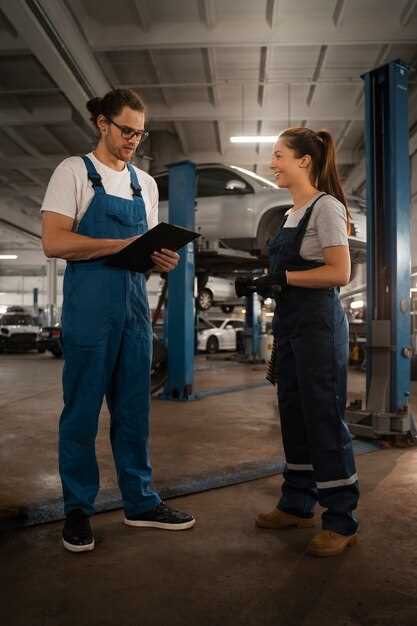
When your vehicle has been involved in an accident, choosing the right collision repair shop is crucial for restoring it to its pre-accident condition. It’s important to approach this process with a clear understanding of what to expect and the right questions to ask. Proper preparation can not only ensure that you receive quality repairs but also help you understand the different aspects of the repair process.
Before scheduling your visit, consider the specific questions that will help you gauge the shop’s reliability and expertise. Knowing what to inquire about can make the difference between a satisfactory experience and a frustrating one. From understanding the qualifications of the technicians to the shop’s warranty policies, being informed empowers you to make the best decision for your vehicle.
This article outlines essential questions you should ask during your visit to a collision repair shop. By addressing these key topics, you can clarify your expectations and ensure that the repair process is smooth and transparent. Whether you’re a first-time visitor or have been through repairs before, these inquiries will help you navigate the complexities of collision repair with confidence.
What to Ask About the Repair Process Timeline?

Understanding the timeline of your vehicle’s repair process is crucial for planning and managing expectations. Here are key questions to consider:
1. What is the estimated duration for the repairs?
Inquire about the projected time frame for completing the repairs. Ask for a specific date or range of dates and factor in potential delays due to parts availability or additional damage discovered during the repair process.
2. How do you determine repair time?
Ask the shop how they assess the time needed for repairs. Understanding their estimation process, including factors like the complexity of the damage and their workload, can provide insight into your vehicle’s repair timeline.
3. Will I be informed of any changes to the timeline?
Communication is key during repairs. Confirm whether the shop will notify you if there are any adjustments to the estimated timeline. This ensures you remain informed throughout the process.
4. What factors could cause delays?
Discuss potential reasons for delays, such as shipping delays on parts, unforeseen damages, or high demand periods. Knowing these factors can help you adjust your expectations accordingly.
5. Can you provide a breakdown of the repair stages?
Request a schedule outlining the various stages of the repair process. This can help you understand what to expect and track progress more effectively.
6. What happens if the repairs take longer than expected?
Inquire about the shop’s policy if repairs exceed the initial timeline. It’s essential to know how they handle such situations, including any adjustments to costs or services offered in case of delays.
7. Are there options for expediting the repair process?
If you need your vehicle back quickly, ask if there are expedited options available. Be sure to understand any additional costs associated with this service.
By asking these questions, you can gain a clearer picture of the timeline for your collision repairs and ensure smoother communication with the repair shop.
How to Evaluate the Qualifications of the Repair Technicians?
When visiting a collision repair shop, assessing the qualifications of the technicians is crucial for ensuring high-quality service. Start by checking if the technicians hold relevant certifications. Industry-recognized certifications, such as those from the National Institute for Automotive Service Excellence (ASE) or the Inter-Industry Conference on Auto Collision Repair (I-CAR), indicate a commitment to professional standards and ongoing education.
Inquire about their experience in the field. A technician with several years of hands-on experience, particularly with your vehicle’s specific make and model, is likely to have a more in-depth knowledge of potential issues and repair techniques. Ask about the types of repairs they specialize in and their familiarity with the latest technologies in collision repair.
Furthermore, observe the shop’s environment. A well-organized and clean workspace often reflects the professionalism and attention to detail of the technicians. Ask the shop manager about the training programs the technicians undergo and whether they stay updated on advancements in automotive repair practices.
Customer reviews and testimonials can provide insights into the workmanship of the technicians. Look for feedback that highlights the quality of repairs, turnaround times, and customer service. This information can help gauge the reliability and skill level of the shop’s staff.
Finally, don’t hesitate to ask questions about the repair process and the materials used. A knowledgeable technician should be able to explain the methods and products employed in the repair, demonstrating expertise and transparency. Evaluating these aspects will help you make an informed decision about the qualifications of the repair technicians.
What Information Should Be Reviewed in the Repair Estimate?

When reviewing a repair estimate for your vehicle, it is essential to understand several key components that contribute to the overall cost and timeline of the repair process. First, examine the description of the damages; it should detail all areas of your car that require attention, including specific parts and the severity of each issue.
Next, investigate the parts list included in the estimate. This section should specify whether original manufacturer parts (OEM) or aftermarket parts will be used, as well as any associated costs. Understanding the difference can impact your vehicle’s performance and value, making it a critical element of your review.
Another important aspect is the labor costs. The estimate should break down the hours required for each repair task and the hourly labor rate. Be sure to verify that the shop’s labor costs align with industry standards and that the estimated hours are reasonable based on the extent of the damage.
Additionally, check for any supplementary fees that might be included–such as disposal fees for old parts or paint safety fees. These can add to the overall estimate and should be clearly outlined. Always ask for clarification on any charges that seem unclear or excessive.
Lastly, consider the warranty information provided in the estimate. It should detail any guarantees on parts and labor, ensuring that you have protection in case the repairs do not hold up over time. A reputable repair shop will stand behind their work, and understanding the warranty terms is vital for your peace of mind.

